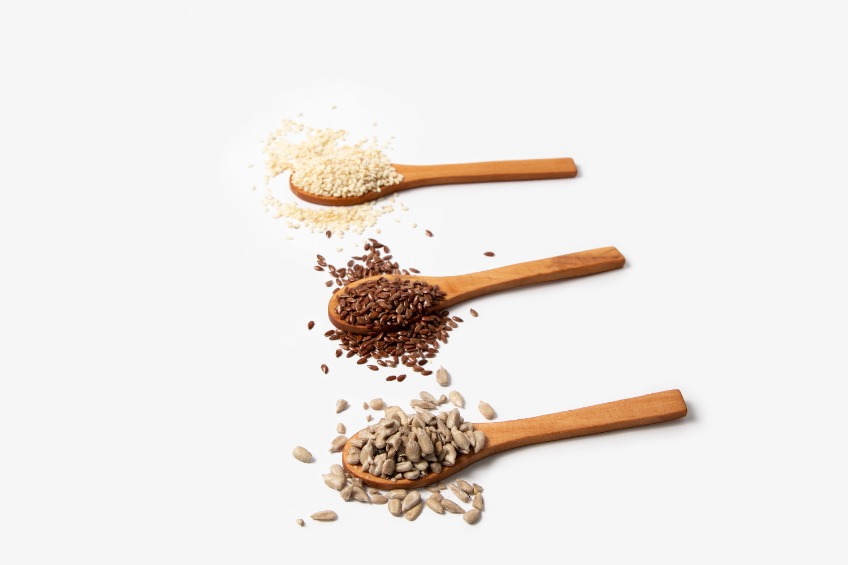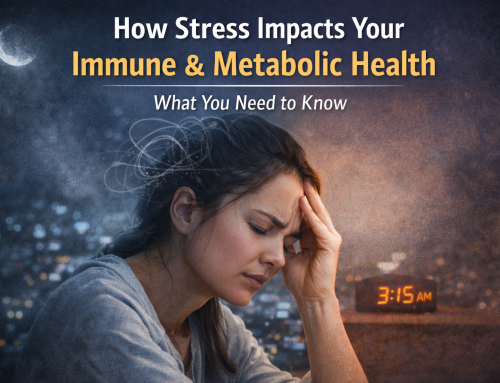What is seed cycling? Seed cycling is a growing trend claimed to balance hormones, boost fertility, and ease symptoms of menopause. It involves eating flax, pumpkin, sesame, and sunflower seeds at different times of the month to balance certain hormones.
However, despite plenty of anecdotal accounts of its usefulness, scientific evidence to back its claims is lacking. This article tells you everything you need to know about seed cycling and whether it’s a helpful practice.
What is seed cycling?
Seed cycling is a naturopathic remedy that is claimed to balance hormones by regulating the hormone estrogen in the first half of your menstrual cycle and the hormone progesterone in the second half.
Its purported health benefits include helping regulate periods, reducing acne, treating polycystic ovarian syndrome (PCOS), endometriosis, and infertility, and easing symptoms of menopause, such as hot flashes, night sweats, fatigue, and mood swings.
Some online sources also assert that it can improve thyroid hormone levels, hair health, weight loss, water retention, and cellulite.
• The most common method instructs women to eat 1 tablespoon each of freshly ground flax and pumpkin seeds per day for the first 13–14 days of their menstrual cycle, which is known as the follicular phase.
• During the second half of their cycle, which is known as the luteal phase, seed cyclers eat 1 tablespoon each of ground sunflower and sesame seeds per day until the first day of their next period when their cycle starts again.
• For menopausal and postmenopausal women without a regular menstrual cycle, it’s often recommended to use the phases of the moon as a guide to cycle dates, with day one of their cycle falling on the new moon.
Proponents claim that positive hormonal changes will be noticed after just a few months of cycling.
How does seed cycling work?
The claims about how seed cycling works are inconsistent across different sources. However, the basic idea is that different seeds can promote or hinder the hormones estrogen and progesterone.
Causes of hormonal imbalance
Most women produce adequate levels of hormones to support a healthy cycle. However, certain health conditions, such as PCOS and hypothyroidism, as well as over-exercising and being under- or overweight, can lead to a hormonal imbalance.
Additionally, during menopause, levels of estrogen and progesterone decrease, which increases your risk of heart disease and osteoporosis and can lead to symptoms like hot flashes and weight gain.
Seed cycling proposes to not only support those with hormonal imbalances but also those with healthy cycles.
How seeds influence hormones
During the follicular phase, proponents of seed cycling claim that the phytoestrogens in flax seeds can help increase or decrease estrogen levels as needed.
Phytoestrogens are compounds in plants that can mimic the action of estrogen.
Additionally, zinc from pumpkin seeds is claimed to promote progesterone production in preparation for the next phase of the cycle.
During the luteal phase, lignans — a type of polyphenol — in sesame are supposed to inhibit estrogen levels from increasing too much. Meanwhile, the vitamin E in sunflower seeds is thought to help boost progesterone levels.
Does seed cycling balance hormone levels?
A primary claim of seed cycling is that it can balance your hormone levels through the actions of phytoestrogens from lignans.
• Sesame and flax seeds have particularly high concentrations of lignans.
• After consumption, these lignans are converted into the mammalian lignans enterolactone and enterodiol.
• These phytoestrogens can mimic the action of estrogen or hinder it, depending on the dose.
• Some small studies in women have linked flax seed intake to improved cycle regularity and hormone levels, a lengthened luteal phase, and reduced cyclical breast pain.
• However, the estrogen-promoting and -hindering effects of these lignans are relatively weak and have primarily been associated with anticancer properties rather than normalizing hormone balance.
• With respect to sesame seeds, one 5-week study in postmenopausal women found that consuming 1.8 ounces sesame powder daily increased levels of some other sex hormones but did not affect estrogen levels.
• Finally, while adequate zinc and vitamin E intake is necessary for good reproductive health, no solid evidence suggests that getting these nutrients from seeds offers any extra benefits for hormone balance.
In general, women with a normal menstrual cycle already produce the correct amounts of hormones. For those with hormonal imbalances, seed cycling is not likely to be the best way to improve symptoms.
Click here to read more about what is seed cycling.






